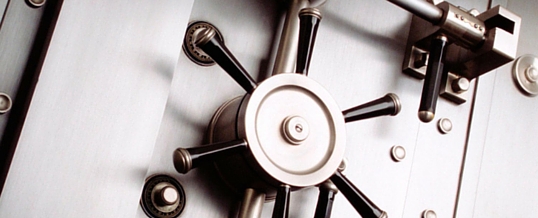
Fancy watching the James Bond movie? If so, chances are, you'll encounter some evildoers do their thing using the banking services in obscure, secret countries. If you believe that's the case when it comes to offshore banking, then Hollywood has probably brainwashed you.
While it's true that there are individuals and businesses who are using offshore companies and/or offshore bank accounts for money laundering purposes and what-nots, the system itself is perfectly legal. And they are accessible to nearly everybody.
The above is one of many myths that people believe about going offshore. The same thing also holds true for banking secrecy, one of the most attractive features of offshore banking.
Due to the attack on banking secrecy, the general public tends to believe that securing assets offshore is wrong and illegal. The truth is far from that. That's why via this post, we would like to debunk five myths about banking secrecy, so that you can now have a better understanding on the pros and cons of the well-sought-after secrecy.
Myth 1: Banking secrecy is dead
Debunked.
In Switzerland and some other countries, maybe. But there are offshore jurisdictions that offer excellent services AND a strong degree of confidentiality, that is well-supported by the country's law – and of course, the banks' very own reputation.
Our partner offshore bank in Puerto Rico, for example, is a private offshore bank that is trusted by clients worldwide. If you are concerned about the banking service quality and privacy, you may want to cast away your worries, as our partner bank in Puerto Rico offers absolute confidentiality.
Myth 2: If you want secrecy, the Carribean islands and other “obscure” locations are the go-to jurisdictions
Debunked.
Indeed, the Carribean is popular destination for offshore banking. But we need to assess the ideal jurisdictions based on your needs.
You should not base your decision for going offshore on “the cheapest” or “great privacy” considerations. While Seychelles, Belize and such offer interesting perks, if you want real privacy, you should go to the jurisdictions in which privacy is part of their culture.
Countries like Austria and Germany can offer you just that: Strong “offshore” (if you are not an Austria's or Germany's citizen) banking systems and privacy protection that are actually part of the culture.
As a side note, Switzerland used to be an integral part of the elite group; however, due to the pressure from other countries, Switzerland has to relinquish some privacy features from its popular offshore banking system. If you want stability, though, Switzerland is still one of the go-to places for that.
Myth 3: Secrecy is just for wrong-doers
Debunked.
Going offshore is about protecting your assets from “the prying eyes,” and unlike what's covered in mainstream media it's accessible to everybody.
Here's to explain: Everyone who gets upset knowing that, for example, their emails are eavesdropped by the Government , or everyone who want full control of their assets and don't want theirs to be frozen by the local banks during economic/political turmoils, can (and should) benefit from the confidentiality offered by offshore jurisdictions.
Myth 4: Numbered bank accounts assure full anonymity
Debunked.
Numbered bank accounts offer some level of anonymity, but not fully. These accounts are meant to protect privacy, but they are not like what they were decades ago. Today's numbered bank account are not fully anonymous; when you open a bank account in an offshore jurisdiction that offers numbered accounts, you are still required to present proof of your identity, source of funds and other private information.
So what's the benefit of a numbered bank account today? It can still protect you from scrutiny while minimizing your exposure in public settings. Unfortunately, the level of protection is diminishing due to the changes in regulations that seem to against offshore banking.
Myth 5: All offshore jurisdictions are offering the same level of secrecy
Debunked.
Every offshore jurisdiction has its own set of pros and cons, which means that it can be beneficial to a certain set of needs, but perhaps not so much to the others.
The requirements, tax laws, level of services, level of protection, and so on are different from one to another – this includes the confidentiality of your account. Depending on your needs, one offshore jurisdiction may offer the features and benefits that suit you better than the others. For example, a numbered account may be the best option for you, but not for other individual/business.
For moving forward with your plan for going offshore, we would suggest you to consult with your trusted attorney regarding this matter. You can also consult us for general information about banking secrecy.
Takeaway
To conclude, banking secrecy is more limited than ever, but it's certainly not dead.
There are some limiting laws and regulations passed against banking secrecy, but there is still much privacy to offer to individuals and businesses who want more freedom, more opportunities and better protections – legally. If done right, anonymity can be the game changer for your personal finance and business' future.
The big question is, until when?
Read also "Why We Need Offshore Banking Services to Exist"
OCT
2015

Table of Contents